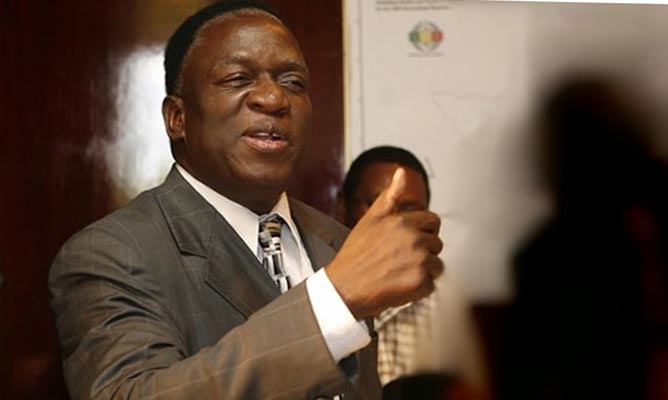
PRESIDENT Emmerson Mnangagwa scored a victory on Friday when the Zimbabwe Human Rights NGO Forum’s application seeking to challenge the composition of the National Peace and Reconciliation Commission (NPRC), was thrown out by High Court judge Justice Owen Tagu.
BY CHARLES LAITON
The NPRC was set to hold public hearings in all the country’s 10 provinces on Friday this week, but the exercise was abruptly halted owing to litigation by the NGO Forum which approached the court on an urgent basis, arguing the commission was not headed by a substantive chairperson. Currently, the NPRC is headed by acting chairperson Lillian Chigwedere.
Apparently, the commission was set to hit the ground running with visits by two teams in Gwanda and Bindura as the government begins to act on the emotive Gukurahundi issue, among other concerns.
But before the commissions embarked on the exercise, the NGO Forum approached the court citing Mnangagwa, the commission and the Attorney-General’s Office in their official capacities as respondents, challenging the legality of the commission.
The Forum said it was seeking to compel Mnangagwa to appoint a substantive chairperson arguing the commission was not fully constituted in terms of the Constitution, but Justice Tagu ruled otherwise.
It was the Forum’s contention that Mnangagwa had acted unlawfully and had failed in his constitutional duty to respect and uphold the Constitution by “failing or neglecting to appoint a chairperson of the NPRC” who is supposed to be a qualified lawyer, as is required by the Constitution.
“The first respondent’s (Mnangagwa) omission in this respect are contrary to the provisions of section 251 (1) of the Constitution. The first respondent’s omission also infringes the rights and fundamental freedom of the people of Zimbabwe to the protection of the law guaranteed in section 56 (1) of the Constitution of Zimbabwe, 2013.”
- Chamisa under fire over US$120K donation
- Mavhunga puts DeMbare into Chibuku quarterfinals
- Pension funds bet on Cabora Bassa oilfields
- Councils defy govt fire tender directive
Keep Reading
The Forum’s executive director Blessing Gorejena had also argued that when Mnangagwa signed the NPRC into law on January 5 2018, he appointed Chigwedere as the acting chairperson, replacing former chairperson Bishop Ambrose Moyo, who also operated in an acting capacity.
“Effectively Chigwedere is acting as the chairperson at this point in time. To complete the picture, the other commissioners are Patience Chiradza, Choice Ndoro, Charles Masunungure, Geoffrey Chada, Leslie Ncube and Godfrey Chekenyere,” he said.
“While Chigwedere may be qualified to act in the absence of the chairperson . . . It is that the first respondent has neglected to carry out his constitutional duty of appointing a qualified person to serve as a chairperson of the NPRC. Since the death of Cyril Ndebele, the NPRC has sought to plod on without a qualified person in the chair.”
The director said after the late Ndebele, former president Robert Mugabe appointed bishop and founder of the Ecumenical Church Leaders Forum, Moyo, but the latter was not qualified simply because he had not practiced law for over seven years.










